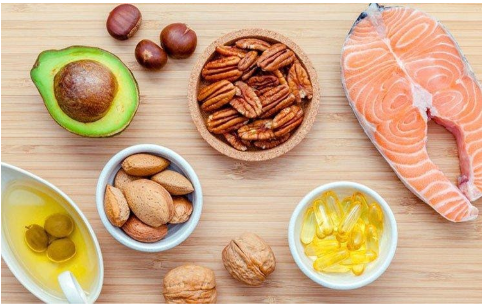31-month-old children: Nutrition and oral care
The article was professionally consulted with Doctor of Pediatrics - Neonatology - Vinmec Nha Trang International General Hospital.
Properly setting up a diet for a 31-month-old baby is one of the best ways to take care of your baby's teeth to help them have healthy teeth throughout life.
1. Diet
Nutrition plays an important role in children's oral health. Establishing healthy eating habits early will ensure your baby has strong teeth as he grows up.
31-month-olds can still be picky eaters, keep an eye on what your baby likes to eat. And the most important thing is to be patient. Help your baby by providing a variety of healthy food options.
What do 31-month-olds eat? Is the question of the vast majority of parents, to ensure nutrition for their children:
Firstly, in the menu for 31-month-old children, there should be enough 4 main food groups in each meal (starch, tubers, etc.) fruits and vegetables, protein and fat). Second: the amount of food and meals should be adjusted based on the age of the child. Third: need to ensure 3 main meals and 2-3 snacks with snacks. One point to note is that you should not disregard the fact that children eat a lot at breakfast. In the morning, you need to eat a lot, usually there are salty cakes, pastries, eggs, cow's milk, porridge... can be combined with other snacks, nutrients account for about 25% of the food for the whole day. .
Lunch accounts for about 35% and dinner should be a bit bland, nutrients account for about 30% of the total amount of food for the whole day.

Chế độ dinh dưỡng cho trẻ cần đảm bảo đủ các nhóm thực phẩm chính
2. Dental care
If the diet for a 31-month-old child changes continuously, the child eats a lot of sugar, processed foods and beverages, increasing the degree of tooth decay. Encouraging healthy eating habits in young children is the best way to help your child have healthy teeth.
In children 31 months of age the risk of tooth decay is very high. To prevent this, parents need to:
Do not breastfeed or bottle-feed your baby with sweetened milk, tonics, soft drinks or juices while sleeping. Bacteria in the baby's mouth will eat the sugar in the drink and form acidic plaque on the tooth surface and cause tooth decay. Don't let your child go to bed with a bottle or other sugary drink. If your baby likes to suck on something to help them fall asleep, use a pacifier (not recommended) Avoid frequent snacking. Three meals and two snacks a day are enough to meet nutritional needs. If your baby has dry mouth (lack of saliva) and bad breath, he or she is at risk for tooth decay. Take care of your baby's teeth from birth. Introduce your baby to gradually weaning off the bottle from 12 months of age and encourage your baby to learn to drink from a cup. In addition, to protect your child's oral health, the menu for a 31-month-old child must pay attention:
Eat a variety of foods, especially foods rich in calcium, low in acid and sugar. Offer your child healthy snacks like yogurt and fruit. Provide a nutritious diet that includes a variety of fresh fruits and vegetables, whole grains, lean meats, and dairy products. Avoid sugary snacks like candy, dried fruit and breakfast cakes, cookies, dried fruit, tonics, juices and soft drinks. Many foods contain high amounts of sugar. Starchy foods and dairy products (including breast milk) that are consumed regularly can increase dental plaque (bacteria). That's why you need to clean your child's teeth in the morning and at night.

Cha mẹ nên chăm sóc răng miệng cho bé thường xuyên
A healthy 31-month-old baby's diet must also be supplemented with good oral hygiene, combined with regular dental check-ups to significantly reduce the risk of tooth decay.
Nutrition for a 31-month-old baby and oral care are interrelated. Therefore, parents need to pay more special attention to these issues to help children develop comprehensively in all aspects.
When a child has health abnormalities, parents can take the child to the Vinmec Health System to be examined and treated promptly by a doctor.
In addition, parents should also apply some methods of changing habits and improving nutrition to support the child's teeth to develop better.
Besides, parents also need to supplement their children with essential micro-minerals such as zinc, lysine, chromium, selenium, vitamin B1, ... to fully meet the nutritional needs of children. The addition of these essential vitamins also supports digestion, enhances nutrient absorption, improves anorexia, and helps children eat well. Parents can simultaneously apply dietary supplements and functional foods derived from nature for easy absorption. The most important thing is that improving your baby's symptoms often takes a long time. Combining many types of functional foods at the same time or changing many types in a short time can make the baby's digestive system unable to adapt and completely not good. Therefore, parents must be really patient with their children and regularly visit the website vimec.com to update useful baby care information.






